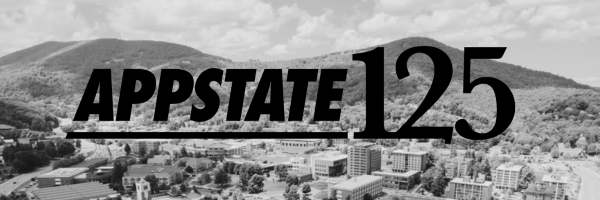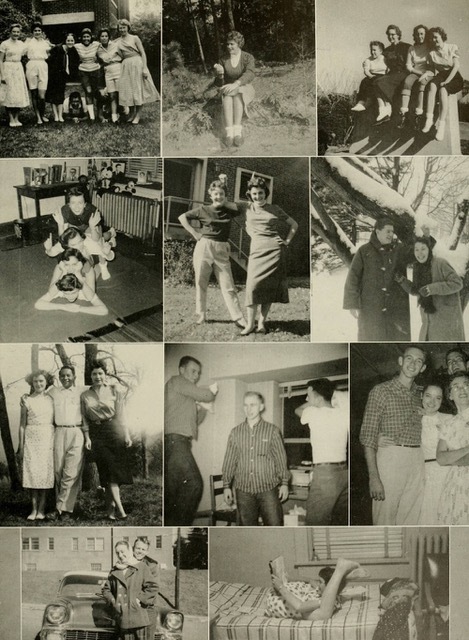Student Agency: 1948-1969
The 1950s and 1960s were times of change at the Appalachian State Teachers College. B.B. Dougherty retired in 1955, and Willliam H. Plemmons took over and began modernizing the school. Transportation in Watauga improved, paving the way for continued growth.
Concerning Women
The University loosened its strict dress policies and disciplinary practices, and the human behavior grade was removed. By 1954-1955, enrollment had increased to 1,199.
In 1957, women students were allowed to wear slacks on campus for certain occasions with permission from the dean. It wasn't until 1967 that women were allowed to wear pants everywhere except in classrooms, the library, and the cafeteria during noon and evening meals on Sundays.
Civil Rights and Trailblazers
In 1965, a study was conducted to test the feasibility and necessity of adding women's intercollegiate sports to the school's athletics.
The State Legislature granted the Appalachian State Teachers College full university status, leading to its renaming as Appalachian State University (1967-present). Three colleges were formed: the College of Arts and Sciences, the College of Fine and Applied Arts, and the College of Education.
In December of 1969, women’s curfews were extended to midnight on Monday-Thursday, 2 a.m. on Friday and Saturday, and 12:30 a.m. on Sunday. By the August of 1970, a no-curfew policy was established for upper-class women; first-year women remained under the restrictions until 1972.









